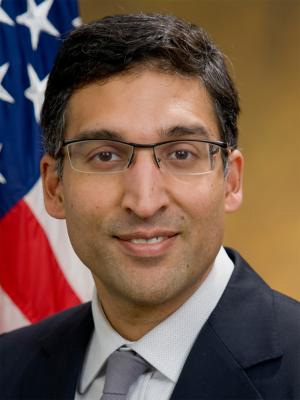Radically extended legal precedents set during conventional wars.

"Neal Kumar Katyal" is an American lawyer and chaired professor of law. He served as Acting United States Solicitor General/Solicitor General of the United States from May 2010 until June 2011. As Acting Solicitor General, Katyal succeeded Elena Kagan, who was President Barack Obama's choice to replace the retiring Associate U.S. Supreme Court Justice John Paul Stevens. Katyal was the Paul and Patricia Saunders Professor of National Security Law at Georgetown University Law Center and the lead counsel for the Guantanamo Bay detainment camp/Guantanamo Bay detainees in the Supreme Court case Hamdan v. Rumsfeld, which held that Guantanamo military commission/military commissions set up by the George W. Bush administration/Bush administration to try detainees at Guantanamo Bay "violate both the UCMJ and the four Geneva Conventions."
More Neal Katyal on Wikipedia.Authoritative decision to stop people from rioting in the streets.
Justice (Stephen) Breyer almost never dissents, ... For him to be that strident I think reflects the deep underlying concern about the appearance of political impropriety.
Its decision vests the president with the ability to circumvent the federal courts and time-tested limits on the executive. No decision, by any court, in the wake of the Sept. 11, 2001, attacks has gone this far.
In the American criminal system, we can have a conspiracy doctrine because we have this unique set of vibrant protections. But when it comes to war-crimes trials, the international consensus is that conspiracy is a no-no. When the U.S. Congress itself defined war crimes in two statutes in 1996 and 1997, it didn't include conspiracy.
It's a quite reasonable interpretation given the facts as presented.
It's not that the States will be forced to recognize marriages from Canada in the United States, but they'll be under increasing pressure in any number of circumstances -- child custody and property being the two most obvious -- to recognize those marriages.
At issue is whether the president can supersede established civilian and military judicial systems.
At issue is whether the president can supersede established civilian and military judicial systems. No graver question was ever considered by this court, nor one which more nearly concerns the rights of the whole people.
Copyright © 2024 Electric Goat Media. All Rights Reserved.